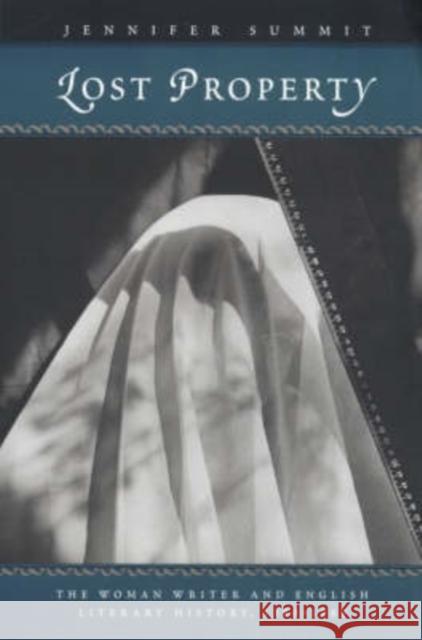Lost Property: The Woman Writer and English Literary History, 1380-1589 » książka
Lost Property: The Woman Writer and English Literary History, 1380-1589
ISBN-13: 9780226780139 / Angielski / Miękka / 2000 / 284 str.
The English literary canon is haunted by the figure of the lost woman writer. In our own age, she has been a powerful stimulus for the rediscovery of works written by women. But as Jennifer Summit argues, "the lost woman writer" also served as an evocative symbol during the very formation of an English literary tradition from the fourteenth through the sixteenth centuries.
"Lost Property" traces the representation of women writers from Margery Kempe and Christine de Pizan to Elizabeth I and Mary Queen of Scots, exploring how the woman writer became a focal point for emerging theories of literature and authorship in English precisely because of her perceived alienation from tradition. Through original archival research and readings of key literary texts, Summit writes a new history of the woman writer that reflects the impact of such developments as the introduction of printing, the Reformation, and the rise of the English court as a literary center.
A major rethinking of the place of women writers in the histories of books, authorship, and canon-formation, "Lost Property" demonstrates that, rather than being an unimaginable anomaly, the idea of the woman writer played a key role in the invention of English literature.











